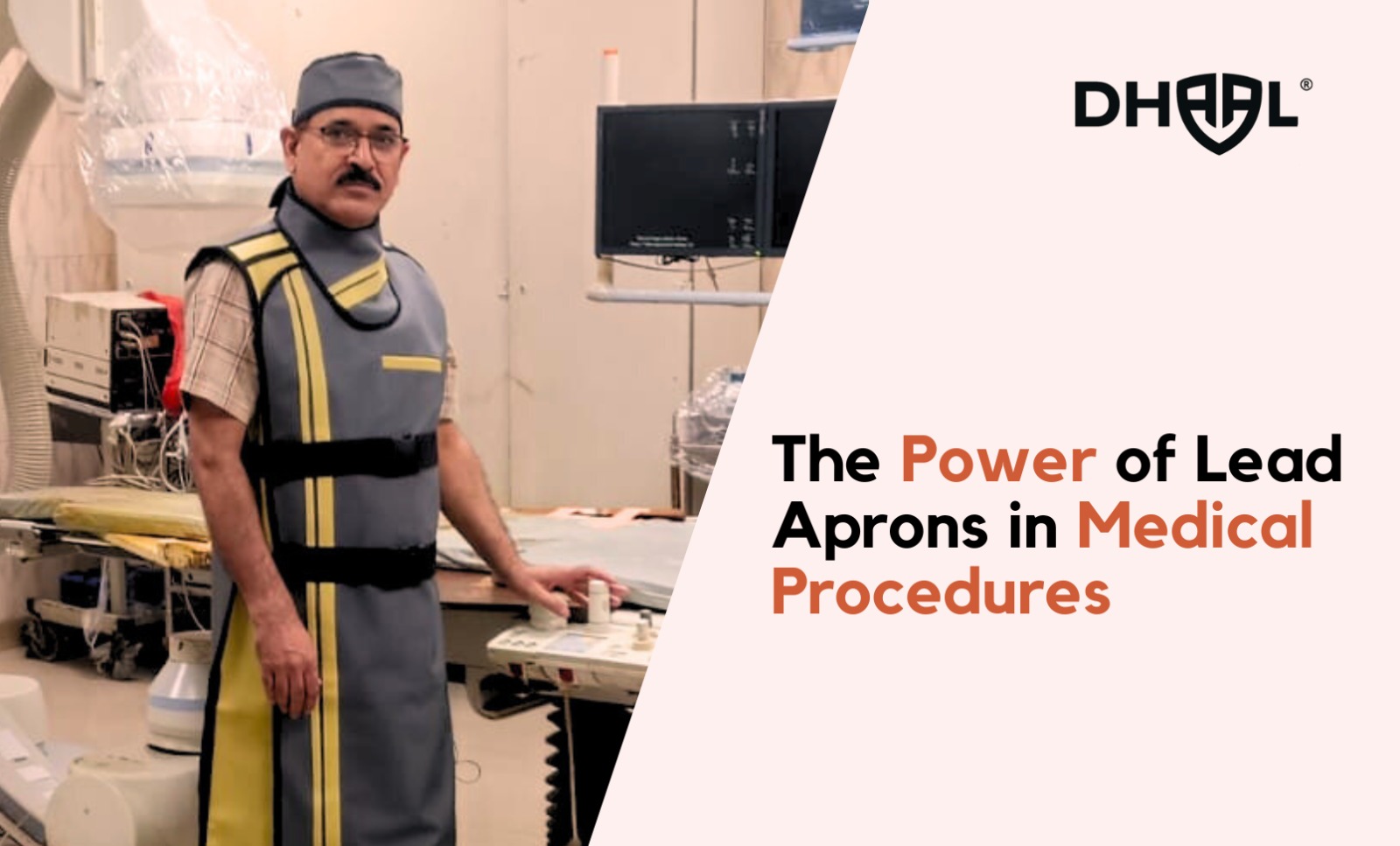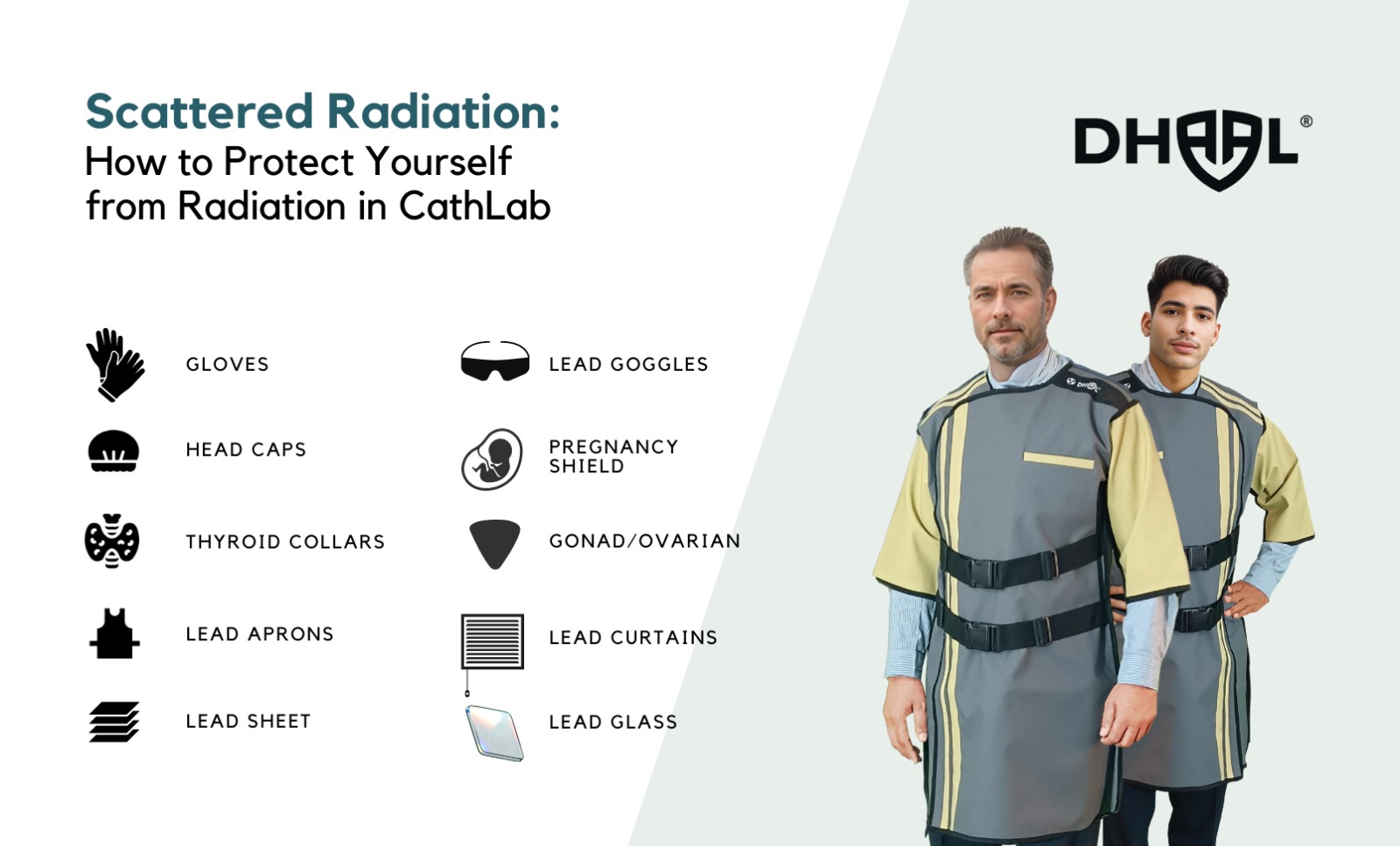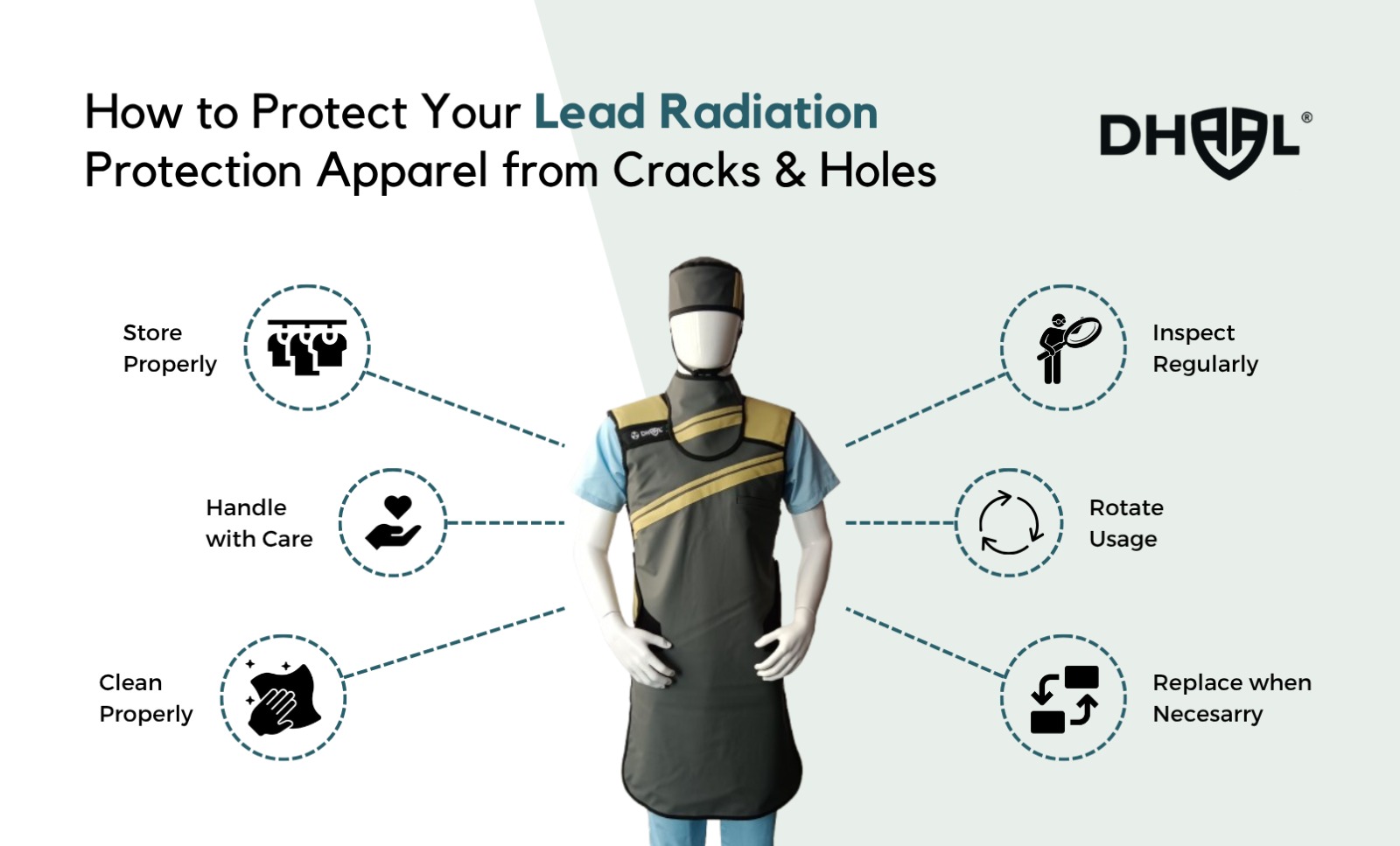
In the world of modern medicine, doctors and healthcare professionals are constantly exposed to a variety of risks, one of the most significant being radiation. Whether it’s during X-rays, CT scans, fluoroscopy, or other imaging techniques, doctors and their teams are routinely in close proximity to radiation sources. As essential as these diagnostic tools are, they pose a long-term health risk to those who are exposed to them frequently. This is where lead aprons play a vital role in ensuring the safety and well-being of healthcare providers.
Understanding the Risks of Radiation Exposure for Doctors
Radiation exposure in medical settings is an unavoidable part of diagnosing and treating patients. Imaging technologies, such as X-rays, computed tomography (CT), and fluoroscopic guidance, are crucial in diagnosing conditions, planning surgeries, and monitoring patient progress. However, repeated exposure to ionizing radiation can have harmful effects on doctors and staff, leading to risks such as:
• Increased Cancer Risk: Prolonged radiation exposure can increase the risk of cancers, especially cancers of the thyroid, brain, and breast.
• Cellular Damage: Ionizing radiation can cause damage to cells, which may lead to mutations or increase the risk of reproductive issues.
• Skin Damage: High doses of radiation can lead to skin burns or radiation-induced dermatitis.
These risks highlight the importance of minimizing exposure to radiation, especially for medical professionals who work in environments with frequent or prolonged exposure.
What is a Lead Apron?
A lead apron is a protective garment made with lead or a lead-containing material that absorbs and attenuates radiation, protecting the wearer from harmful exposure. Lead is highly effective in shielding against radiation, blocking much of the radiation that would otherwise penetrate into the body.
While the primary use of lead aprons is to protect doctors and healthcare professionals, they are also commonly used by patients undergoing procedures that involve radiation. These aprons come in various styles, including full-body aprons, thyroid collars, and even special vests for doctors who work with fluoroscopy.
How Lead Aprons Protect Doctors
Lead aprons are an essential part of a healthcare professional’s protective gear when working in environments where radiation is used. Here’s how they work to safeguard doctors:
1. Absorbing and Attenuating Radiation: Lead aprons are designed to absorb a large portion of the ionizing radiation before it can reach the body. The dense material of lead prevents the radiation from penetrating through, significantly reducing the dose received by the wearer.
2. Protecting Key Organs: Lead aprons are typically designed to cover the torso, which houses vital organs such as the heart, lungs, and reproductive organs. Specialized aprons may also include protection for the thyroid, a gland that is highly sensitive to radiation.
3. Reducing Long-Term Health Risks: Regular exposure to radiation without protection can contribute to cumulative damage over time. By wearing a lead apron, doctors reduce their exposure during procedures, helping to mitigate the long-term health risks associated with radiation.
4. Minimizing Scatter Radiation: Scatter radiation, which occurs when radiation bounces off tissues or equipment, can pose a serious risk to healthcare workers. Lead aprons help protect doctors from this secondary radiation, which can otherwise be hard to predict and avoid.
The Importance of Proper Usage and Maintenance
While lead aprons are incredibly effective at protecting against radiation, their efficacy can be compromised if they are not properly maintained. Here are a few key points for doctors to remember:
• Proper Fit: A lead apron must fit properly to provide maximum protection. Ill-fitting aprons may leave areas of the body exposed to radiation.
• Regular Inspections: Lead aprons should be inspected regularly for signs of wear, cracks, or tears. If the apron is damaged, it may not provide adequate protection.
• Clean and Store Properly: To maintain the integrity of the lead, aprons should be cleaned and stored according to the manufacturer’s instructions. Avoid folding or creasing the apron, as this can cause damage to the protective material.
• Wear the Right Type: Depending on the procedure, doctors may need different types of lead aprons. Full-body aprons are standard, but specialized vests and thyroid shields may be necessary for certain situations.
Conclusion: A Small Investment for Long-Term Safety
The use of lead aprons is a simple yet powerful way to protect doctors and medical professionals from the harmful effects of radiation exposure. By investing in high-quality lead aprons, ensuring proper usage, and maintaining them carefully, doctors can reduce their risk of radiation-related health issues and continue to provide safe and effective care for their patients.
As medical technology continues to advance, so too does the need for enhanced safety measures. Lead aprons are an essential part of the protective gear doctors rely on to stay safe in a world where radiation is a necessary but unavoidable part of modern healthcare. With the right precautions, doctors can continue their vital work while minimizing the risks posed by radiation.



